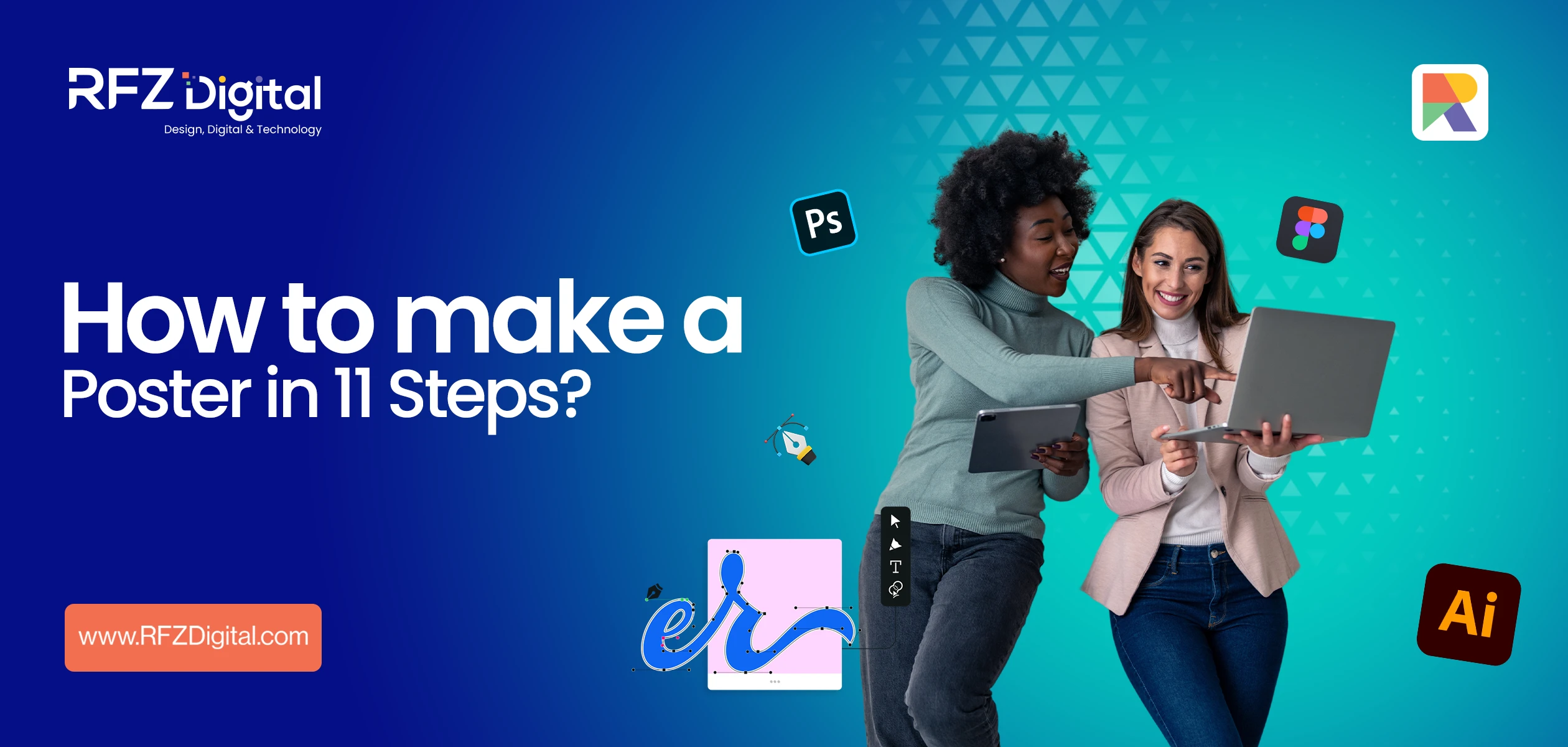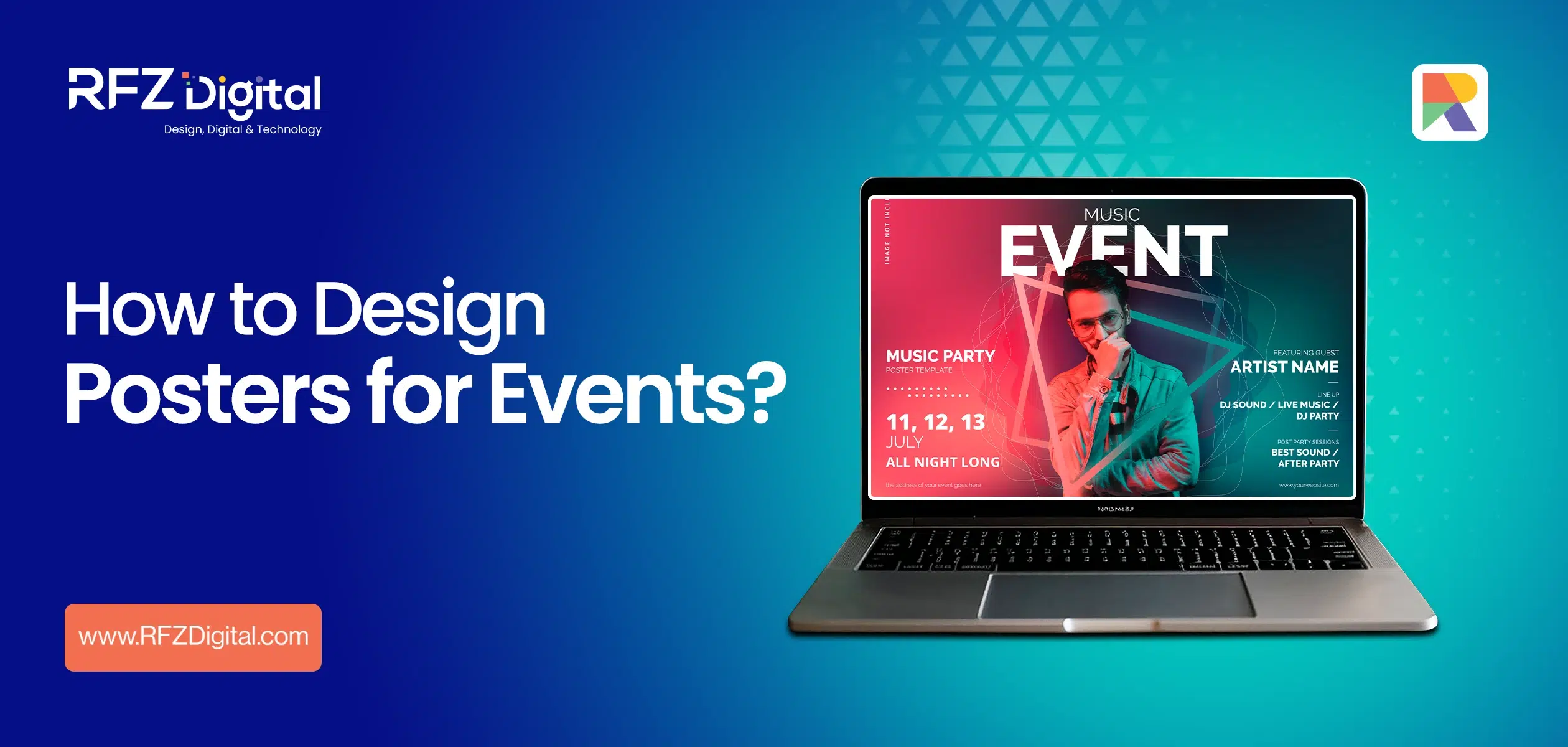In the vast realm of marketing, how to make a poster is an intricate dance of creativity and strategy. This art form, among the oldest and tried-and-true methods of crafting effective marketing collateral, goes beyond mere aesthetics. It's about capturing attention, driving sales, and promoting various events and fundraisers. As a designer, I've come to appreciate the nuanced process of turning a blank canvas into a visually stunning poster.
Now, let's delve into the heart of the matter of how to design posters. There's no one-size-fits-all approach; instead, best practices can elevate your poster game. Whether starting from scratch or utilizing professionally crafted poster templates, the key lies in understanding how design principles can be applied. Tools like Adobe Illustrator and Adobe Photoshop have become essential in transforming ideas into captivating visuals.
The oldest methods in poster design often hold the most wisdom. These tried-and-true techniques have stood the test of time, making them indispensable in crafting posters that stand out. As we explore these strategies, consider how they can be virtually applied to any poster project. And adapting to diverse themes and purposes.
To truly be effective, a poster must go beyond visual appeal. It should effortlessly draw attention, telling a story that resonates with the audience. Whether promoting a sale, announcing an event, or supporting a fundraiser, the design should possess the power to connect.
In my journey as a designer, I've found that infusing a personal touch into the creative process adds a unique flair to each project. It's about more than just following best practices; it's understanding the essence of the message and translating it into a design that speaks to people on a personal level.
In conclusion, the art of making a poster is an ever-evolving process, a fusion of creativity, strategy, and personal experience. Whether you're a seasoned designer or just stepping into the world of poster creation, remember that the oldest methods can blend seamlessly with modern design tips. As you embark on your poster-making journey, let your creativity flow, and don't forget to apply the timeless strategies that make a poster truly impactful.
Personal Experience:
As I ventured into creating my own poster, I embarked on a journey filled with creativity and purpose. Starting with the foundational step of outlining my message and target audience, I found that this initial groundwork provided a clear direction for my design process.
Crafting an outline served as a roadmap, allowing me to allocate space for captivating images and engaging copy, all while ensuring a harmonious visual hierarchy. The selection of a suitable color scheme was a delightful exercise, as I discovered how colors can evoke emotions and amplify the overall impact of the poster.
Delving into Canva, an online design platform, opened up a world of possibilities. Selecting a template and infusing it with my personal touch was a truly rewarding experience. Exploring the myriad design features within Canva empowered me to bring my vision to life, incorporating graphics, fonts, and layout adjustments to enhance the poster's appeal.
Ordering prints marked the culmination of my creative endeavor, as I eagerly anticipated holding the tangible representation of my efforts. Each step of the process, from ideation to execution, revealed the power of effective visual communication through posters, leaving me with a sense of accomplishment and excitement for future design projects.
How do you design a poster from scratch?
Following are the tips for designing a poster from scratch.
1. Start with your foundation:
Creating a visually compelling poster involves more than just aesthetic considerations. Putting a few ideas on paper is the starting point in the journey of making your mark in the realm of poster design. This initial step is crucial as it sets the foundation for the entire creative process. Before delving into the actual design, a pre-design process is essential.
Gathering your team to hash out the specifics, clarifying the design's goal and objectives, identifying the target audience, and defining what you wish to accomplish provides a roadmap for the design journey. This deliberate approach ensures that each element in your poster has a purpose and contributes to the overall impact. Reflecting on my own experience, this thoughtful process has proven to be instrumental in crafting posters that not only visually captivate but also effectively communicate the intended message. Every detail, when strategically placed during this initial phase, becomes a crucial piece of the puzzle in achieving a successful poster design.
2. Identify your brand image and personality:
In the realm of brands and companies, the creation of a compelling poster goes beyond mere aesthetics; it becomes a reflection of your organization and what it stands for. Crafting a poster template is a powerful tool for conveying your brand's identity and personality. However, the challenge arises when you're not entirely sure about your brand and lack a brand style guide to adhere to. Without a clear understanding of how you want people to perceive your brand and the values it stands for, your poster designs may feel scattered and lack cohesion.
Remember that your brand identity is the cornerstone when creating posters. It serves as a guide for maintaining consistency in your brand messaging. Reflecting on my own experiences as a designer, I've witnessed the impact of aligning poster designs with a brand's image and personality. This process not only adds a layer of authenticity to the design but also ensures that the message resonates with the intended audience. Consider the example of a stunning poster from The North Face, embodying the company's image of toughness and outdoor adventure. Understanding and leveraging your brand's essence in poster creation is the key to making a lasting visual impact.
3. Identify your posters audience:
Understanding your poster's audience is paramount to crafting a design with meaningful impact and resonance. Without a clear grasp of your target viewers, your design risks feeling disconnected and unengaging. Therefore, prior to embarking on the poster creation process, it's crucial to delineate your ideal audience by considering the following aspects:
- Who comprises my target audience for this poster?
- What motivates this individual to engage with my poster?
- What type of content is most likely to resonate with them?
- What are their inherent needs, obstacles, and pain points?
- How can my brand or business address these needs effectively?
By addressing these essential questions, you'll gain deeper insights into your poster's audience, empowering you to make informed design decisions that align closely with their preferences and expectations. This approach ensures that your poster resonates authentically with the intended viewers, fostering stronger engagement and connection.
4. Define your posters message:
They say a picture is worth a thousand words, and this saying holds true for a reason. While your design may not require an abundance of text, it must convey a specific message that serves as the cornerstone for all design decisions.
For instance, if you aim to promote an upcoming fun run, your design should exude an aura of energy and movement. This could involve incorporating vibrant colors, utilizing enthusiastic and motivational language, and employing imagery that captures the essence of liveliness and activity, thereby aligning with the event's spirited nature.
5. Strategize Distribution Channels for Your Poster:
When considering how to make a poster, it's crucial to deliberate on the most effective platforms for sharing your creation. Whether targeting physical or digital avenues, a strategic approach to dissemination can significantly impact your poster's reach and influence. Factors to consider include optimizing the design for print, envisioning ideal placement scenarios, selecting standard paper sizes, and implementing bleed marks for seamless printing. Additionally, optimizing the poster for social media ensures maximum engagement across digital platforms, bolstering its online presence and impact.
6. Commence with a Professional Poster Template:
Embarking on the journey of creating a compelling poster entails starting with a professional template that serves as a solid foundation for your design. Leveraging a well-crafted template provides a structural advantage, allowing for efficient customization while maintaining a polished and visually appealing aesthetic.
7. Embrace a Relevant or Branded Color Scheme:
Selecting a color scheme that resonates with the poster's content and aligns with your brand's identity is pivotal in crafting an impactful visual message. By choosing colors that are relevant to the subject matter or reflective of your brand, you can enhance the poster's cohesiveness and visual appeal, thereby fostering a stronger connection with the target audience.
8. Visualize Strategic Placement for Your Poster:
When delving into the process of how to make a poster, visualizing the ideal locations for displaying your creation is essential. Considering the target audience and the intended impact, envisioning strategic placement opportunities can elevate the poster's visibility and resonance.
9. Select an Appropriate Standard Paper Size:
In the pursuit of understanding how to make a poster, selecting a standard paper size is a foundational consideration. Choosing the right dimensions not only ensures compatibility with printing requirements but also facilitates seamless integration into various display settings.
10. Implement Bleed Marks for Printing Precision:
To achieve professional printing results, incorporating bleed marks is imperative when creating a poster. Understanding how to make a poster involves setting precise bleed marks to guarantee accurate trimming and consistent visual coherence.
11. Enhance Visibility by Optimizing Your Poster for Social Media:
In the digital age, optimizing your poster for social media channels is a pivotal aspect of the design process. Tailoring the poster's visuals and content to suit social media platforms maximizes its online impact and encourages engagement from a broader audience.
How to make a good poster?
Here are the key points to consider in creating a good poster:
- Visibility: Ensure that important information is legible from a distance of approximately 10 feet, allowing for easy readability and comprehension.
- Concise Title: Craft a brief and attention-grabbing title that captures the interest of viewers, encouraging them to engage with the content.
- Optimal Word Count: Aim for a word count ranging between 300 to 800 words, striking a balance between providing sufficient information and avoiding overwhelming the audience with excessive text.
- Clarity and Precision: Keep the text clear, concise, and directly relevant to the poster's purpose, allowing for quick comprehension of the key message.
- Visual Hierarchy: Utilize bullets, numbering, and headlines to organize content effectively, facilitating easy readability and information absorption for viewers.
- Strategic Visual Elements: Incorporate graphics, colors, and fonts thoughtfully to enhance the visual appeal of the poster and effectively convey the intended message to the audience.
Conclusion:
As we conclude this journey through the intricacies of poster design, remember that creativity knows no bounds. Whether you're a seasoned designer or just beginning your exploration of poster creation, embrace the process with enthusiasm and curiosity. Let your imagination soar, and don't hesitate to experiment with different techniques and styles.
In your quest to make a poster that truly stands out, consider the expertise and guidance offered by RFZ Digital. With their exceptional poster design services, you can elevate your vision to new heights. And create posters that captivate, inspire, and leave a lasting impression on your audience. So, as you embark on your next poster design endeavour, dare to dream big, think boldly, and let your creativity shine.

 0
0



Comments:
No comments yet. Be the first to comment!